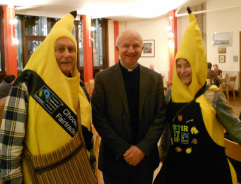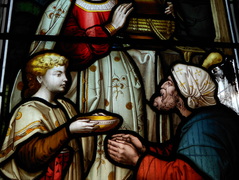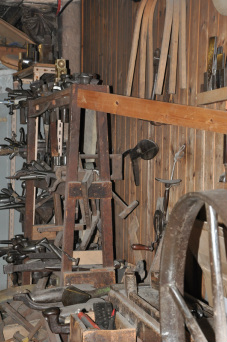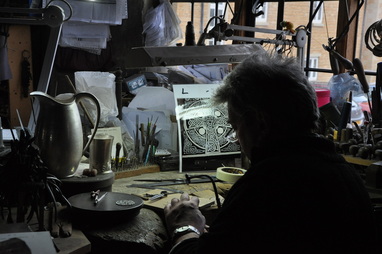
One takes such things in one's stride, of course, even if they seem somewhat unconventional. One moment, all was as normal: Emily and Richard busy in the kitchen, Annabel and I in the office, and various customers seated at their tables enjoying Fairtrade coffee and cake - Stan, Simon and Patrick among them. The next moment, two bananas arrived to check out our credentials. (Which are, of course, as near impeccable as we can manage.) They came as part of the Fairtrade Fortnight campaign to raise awareness of Fairtrade.
Our consciousness of where our food comes from has already been raised by concerns over horsemeat, DSM and MSM. Cheap food comes at the cost of eating...we know not what, and are horrified when we find out.
Fairtrade (http://www.fairtrade.org.uk) highlights a different but related issue. It urges us not to put cheap food above the needs and rights of those who produce it. It's about proper prices, decent working conditions, local sustainability, and fair terms of trade for farmers and workers in the developing world. Not so they can exploit us, but so we (and the middlemen) don't exploit them. It secures the long-term future of individuals and communities, and reduces reliance on aid projects.
The Fairtrade vision 'is of a world in which justice and sustainable development are at the heart of trade structures and practices so that everyone, through their work, can maintain a decent and dignified livelihood and develop their full potential.' Surely that's an integral part of loving our neighbour as we love our own self, and worth paying a little more to achieve.
The Fairtrade Foundation works with businesses, churches, other community groups and individuals in order to achieve its aims. Leamington achieved Fairtrade Town status in 2006 (Coventry Diocese and All Saints' Leamington Spa were already committed to Fair Trade), and since then there has been significant progress nationally with the Fairtrade cause. But for many individuals, opting for non-Fairtrade products remains a real temptation: often they're cheaper, and sometimes it's down to personal preference. Some of these products may have been produced under terms and conditions which we'd feel comfortable with, but others will not have been. Checking for the Fairtrade label reassures our conscience and helps us to fulfil part of the calling expressed by the prophet Micah: to do justly, love mercy, and walk humbly with our God.








 RSS Feed
RSS Feed